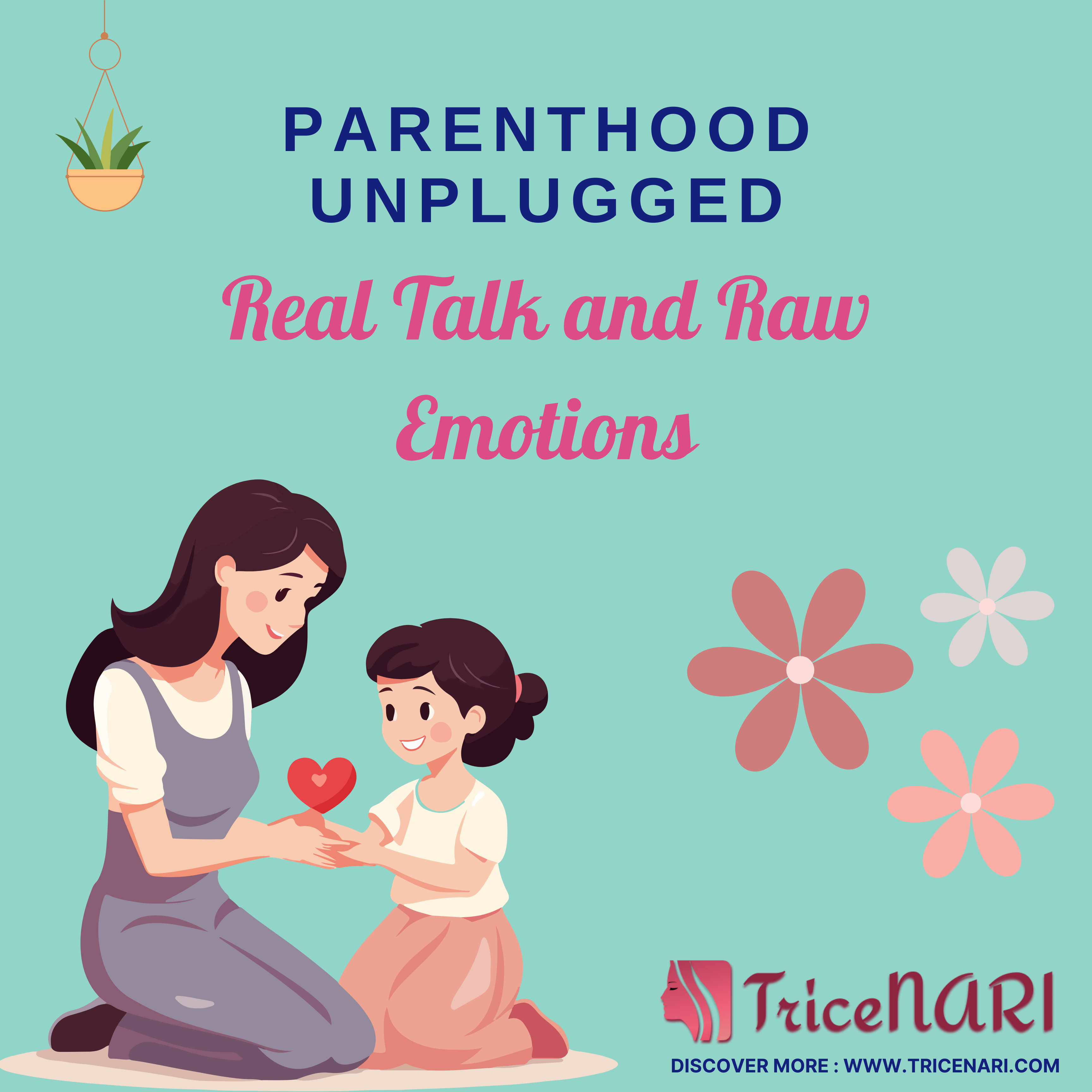Parenthood Unplugged: Real Talk and Raw Emotions
Parenting is a journey filled with ups and downs, twists and turns, but in the costliness era where everyone juggles in their career they somewhere not able to give their 100% to their family and as we grown up by seeing our parents who put their families on top priority, today’s parents start feeling that they are losing emotional connection with their children because they don’t spend much time with them. Building emotional connections with your child is not just about providing for their physical needs; it's about taking care of their emotional well-being and creating a relationship built on trust, understanding, and love and at its core lies the profound bond between parent and child. In this article, we'll explore essential strategies for strengthening these connections by understanding your child's emotions.
When your child expresses an emotion, whether it's joy, sadness, anger, or fear, take the time to acknowledge and accept their feelings without judgment or criticism.
The foundation of any strong emotional connection is a safe and supportive environment where your child feels comfortable expressing their feelings without fear of judgment or rejection. As a parent, it doesn’t necessary that if you don’t have so much time for your children then you can’t build emotional connection because for building connection you need to create a space where open communication is encouraged, and your child knows they can come to you with anything that's on their mind. This means actively listening to your child, offering empathy and validation, and demonstrating that you are there for them, no matter what. Understanding your child's emotions requires more than just listening to their words; it requires tuning into their nonverbal cues, such as facial expressions, body language, and tone of voice. Pay attention to the subtle signals your child gives off, and try to understand what they might be feeling beneath the surface. By developing this level of attachment, you can better respond to your child's emotional needs and provide the support and validation they crave.

One of the most powerful ways to build emotional connections with your child is by validating their feelings. When your child expresses an emotion, whether it's joy, sadness, anger, or fear, take the time to acknowledge and accept their feelings without judgment or criticism. Let them know that it's okay to feel the way they do and that you are there to support them through whatever they are experiencing. Because pursuing career and family is not something new in our childhood you have seen that some moms busy in tailoring, farming, knitting, to give financial support to their family and same time giving equal priority to their child’s. that’s how they give feeling of connection their child and That’s validation helps their child feel heard, understood, and loved, strengthening their bond in the process. Emotional intelligence is a crucial skill that will serve your child well throughout their life. By teaching them to recognize and label their feelings, you empower them to communicate their emotions effectively and seek support when needed. Encourage your child to express themselves using words rather than actions, and provide them with a rich vocabulary of emotions to draw from. This will not only help them navigate their own feelings but also enhance their ability to empathize with others. Children learn by example, so it's essential to model healthy emotional expression in your own behaviour. Be mindful of how you react to your own emotions and the emotions of others, and strive to demonstrate healthy coping strategies for managing difficult feelings. Show your child that it's okay to feel a range of emotions and that expressing those feelings in a healthy way is both normal and necessary. By modelling these behaviours, you provide your child with valuable tools for managing their own emotions and building healthy relationships with others. Also you can engage in playful activities with your child that promote bonding and communication, such as pretend play, storytelling, or creative arts and crafts. Use these opportunities to explore your child's emotions in a safe and supportive environment, and show them that you are interested in what they have to say. By fostering connection through play, you create lasting memories and strengthen your emotional bond with your child. And practicing patience and understanding is key in nurturing emotional connections with your child. It's a process that demands time and perseverance. Embrace the journey with both yourself and your child, recognizing that emotions can be intricate and overwhelming at times. Offer unwavering support and guidance as needed, fostering a secure space for your child to navigate their feelings and cultivate emotional resilience. Indeed, building these connections requires intention, empathy, and patience. This bond will accompany you through the peaks and valleys of parenthood, providing strength and steadfast companionship along the way.





